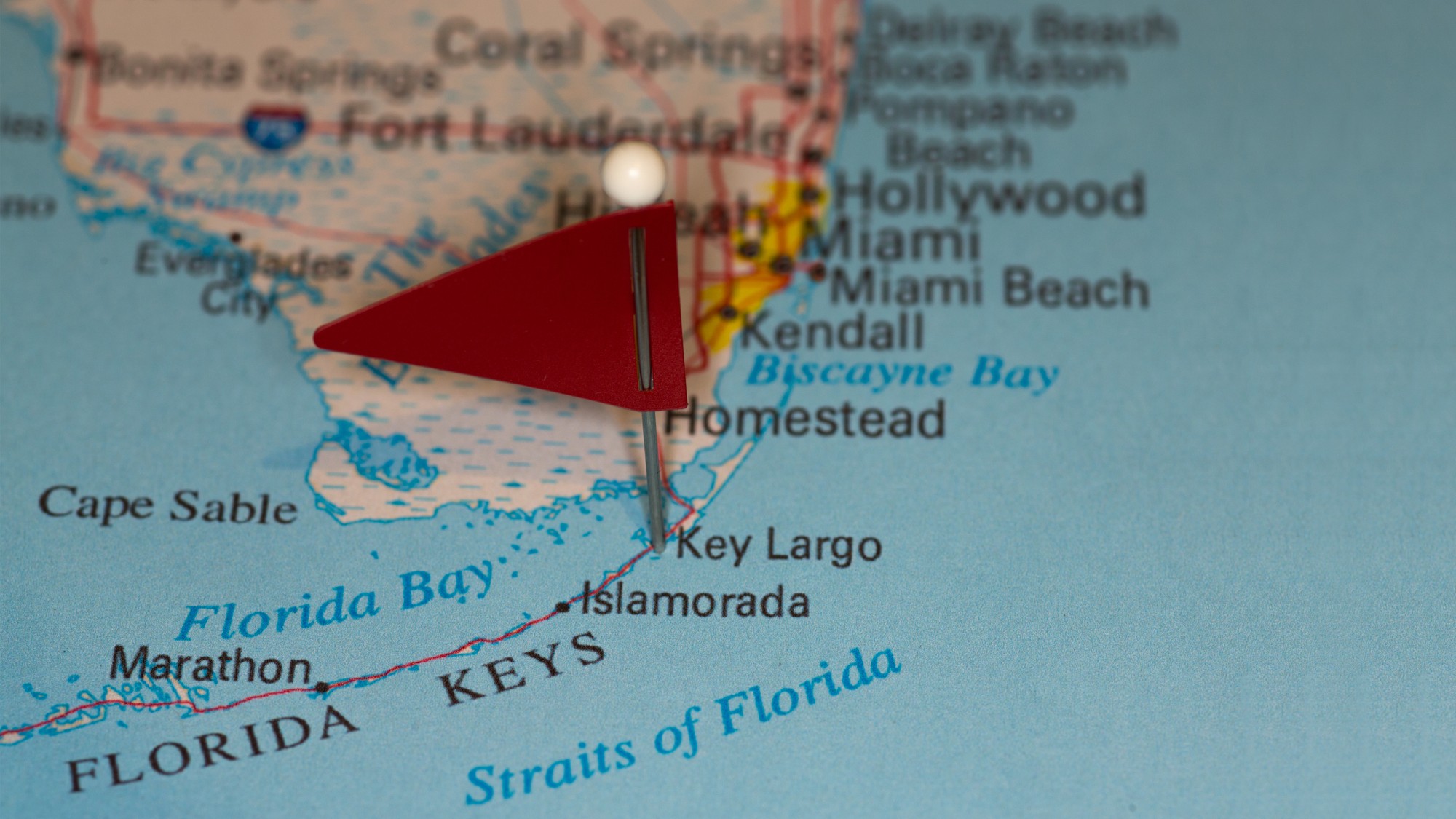The first US species has been driven to extinction due to sea level rise
The cactime is up


A free daily email with the biggest news stories of the day – and the best features from TheWeek.com
You are now subscribed
Your newsletter sign-up was successful
The population of the Key Largo tree cactus has been wiped from the Florida Keys. While scientists are now working on a potential restoration, more species will likely see similar fates as climate change worsens and sea levels continue to rise.
Why did it become extinct?
In a study published in the Journal of the Botanical Research Institute of Texas, the species has been deemed locally extinct, meaning "researchers know of no naturally growing Key Largo cacti in the United States," the study said. While the plant can be found in other countries around the Caribbean, "it's a big deal when we lose species from an entire country," George Gann, a co-author of the study, said to The Washington Post.
The cactus tree population was diminished through saltwater inundation and soil depletion. The site where the species grew "originally had a distinct layer of soil and organic matter that allowed the cactus and other plants to grow, but storm surge from hurricanes and exceptionally high tides eroded away this material until there wasn't much left," said the Florida Museum of Natural History.
The Week
Escape your echo chamber. Get the facts behind the news, plus analysis from multiple perspectives.

Sign up for The Week's Free Newsletters
From our morning news briefing to a weekly Good News Newsletter, get the best of The Week delivered directly to your inbox.
From our morning news briefing to a weekly Good News Newsletter, get the best of The Week delivered directly to your inbox.
The area also saw excessive saltwater intrusion, which has been known to cause higher mortality rates among tree cacti. "The higher tides may have even made freshwater less available to small mammals and prompted the frenzy on the cactuses stems to quench their thirst," said the Post. The Key Largo tree cactus is now only found cultivated in two nurseries in Florida and not naturally in the wild.
What does this say about the future?
The untimely demise of the Key Largo tree cactus is only the beginning. "This is just one example of what's happening to dozens of species, and people need to understand that if we don't do something, this loss is just going to accelerate," Gann said to CNN.
Local species are more at risk because they usually require specific conditions to grow. "This is the first of many losses likely to be suffered in the coming decades" in the Florida Key region, said Jimmy Lange, a study co-author, to Salon. "Much of the unique Keys flora are found at relatively low elevations, even for the Keys. This situation is confounded by decades of habitat loss, degradation and other factors like invasive species that threaten the integrity of these terrestrial ecosystems."
All hope is not lost. Scientists have been cultivating the Key Largo tree cactus and are hoping to reintroduce the species in a new location on higher ground in the future. Government agencies are also working in association with scientists to prevent further biodiversity loss due to climate change.
A free daily email with the biggest news stories of the day – and the best features from TheWeek.com
But without addressing the root of the habitat destruction, not much can be done. "Unfortunately, the Key Largo tree cactus may be a bellwether for how other low-lying coastal plants will respond to climate change," said Jennifer Possley, the lead author of the study, to the Florida Museum of Natural History.
Devika Rao has worked as a staff writer at The Week since 2022, covering science, the environment, climate and business. She previously worked as a policy associate for a nonprofit organization advocating for environmental action from a business perspective.
-
 Local elections 2026: where are they and who is expected to win?
Local elections 2026: where are they and who is expected to win?The Explainer Labour is braced for heavy losses and U-turn on postponing some council elections hasn’t helped the party’s prospects
-
 6 of the world’s most accessible destinations
6 of the world’s most accessible destinationsThe Week Recommends Experience all of Berlin, Singapore and Sydney
-
 How the FCC’s ‘equal time’ rule works
How the FCC’s ‘equal time’ rule worksIn the Spotlight The law is at the heart of the Colbert-CBS conflict
-
 The environmental cost of GLP-1s
The environmental cost of GLP-1sThe explainer Producing the drugs is a dirty process
-
 The plan to wall off the ‘Doomsday’ glacier
The plan to wall off the ‘Doomsday’ glacierUnder the Radar Massive barrier could ‘slow the rate of ice loss’ from Thwaites Glacier, whose total collapse would have devastating consequences
-
 Can the UK take any more rain?
Can the UK take any more rain?Today’s Big Question An Atlantic jet stream is ‘stuck’ over British skies, leading to ‘biblical’ downpours and more than 40 consecutive days of rain in some areas
-
 As temperatures rise, US incomes fall
As temperatures rise, US incomes fallUnder the radar Elevated temperatures are capable of affecting the entire economy
-
 The world is entering an ‘era of water bankruptcy’
The world is entering an ‘era of water bankruptcy’The explainer Water might soon be more valuable than gold
-
 Climate change could lead to a reptile ‘sexpocalypse’
Climate change could lead to a reptile ‘sexpocalypse’Under the radar The gender gap has hit the animal kingdom
-
 Why scientists want to create self-fertilizing crops
Why scientists want to create self-fertilizing cropsUnder the radar Nutrients without the negatives
-
 The former largest iceberg is turning blue. It’s a bad sign.
The former largest iceberg is turning blue. It’s a bad sign.Under the radar It is quickly melting away
